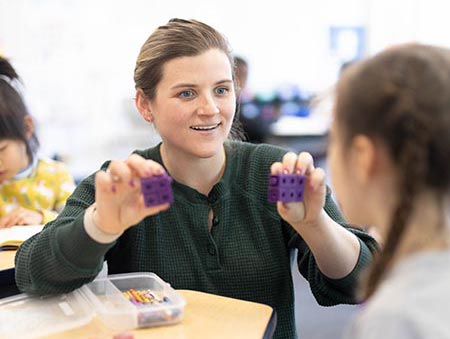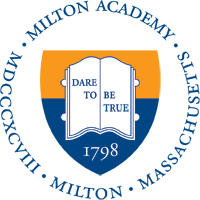Grade 1
The Grade 1 year is designed to support children’s rapidly expanding understanding of community. Students conduct investigations to learn how communities work and what they need to function effectively. They study communities beyond our school and translate what they are learning about these broader communities to their own classroom learning community. Not only do they study communities, but they also construct them, whether in the block building area or in the co-creation of classroom expectations. Thanks to our small class sizes, we can provide individualized learning experiences for each of our students; this is especially true during our phonics and reading classes, where we use research-based, scientific approaches to support each child on their individual reading journey. Hands-on learning is a key part of the Grade 1 year, as children channel many of the skills that they learn during play towards solving meaningful problems that interest them.

Math
- Content
- The structures of our Base 10 number system, including place value
- Comparing and contrasting geometric shapes
- Constructing 2D and 3D geometric shapes
- Addition and subtraction: more efficient strategies, models, and related big ideas
- Measurement as a key “big idea” in mathematics
- The relationship between measurement and fractions
- Modeling with data: comparing and contrasting data sets
- K-5 Math Practices
- Make sense of problems and persevere in solving them.
- Reason abstractly and quantitatively.
- Construct viable arguments and critique the reasoning of others.
- Model with mathematics.
- Use appropriate tools strategically.
- Attend to precision.
- Look for and make use of structure.
- Look for and express regularity in repeated reasoning.
Reading
- Phonics
- Phonological awareness skills
- Print awareness skills
- Decoding and word-solving skills
- Vocabulary development and word-learning strategies
- Reading fluency
- Accurate, fluent reading
- Appropriate phrasing and expression
- Reading pace
- Reading workshop
- Reading nonfiction to learn about the world
- Reading fiction to learn about story elements, characters, and themes
- Reading as writers: reading realistic fiction, poetry, “all about…” books, and literary comics.
Writing
- Realistic fiction
- Poetry
- Informational texts (“All About…” books)
- Comics as a form of storytelling
Social Studies
- A Study of Ourselves
- You and Me: What makes each of us unique? How are we the same and different?
- Hair and Skin: Why do we have different skin colors? What is melanin? Why is hair curly or straight?
- A Study of Community
- What is a community?
- Zooming in on a neighborhood community: What does a community need? How does a city planner decide where businesses and homes should be located? How do people get from place to place in a community?
- Jobs in the community: What jobs do people have in a community? What are the skills and training needed for a particular job? How do the people in a community help each other?
Diversity, Equity, Inclusion, & Justice (DEIJ)
- Anti-bias: creating a safe and comfortable classroom environment; understanding bias and discrimination; challenging and confronting bias
- Racial literacy: we are part of a larger community
- Social justice: Who are the activists in my community? Art and activism.
